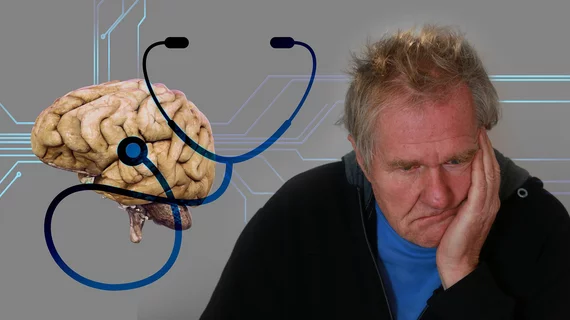AI gets $20M infusion to go on the offensive against Alzheimer’s
The NIH’s National Institute on Aging has awarded $20 million to a new center focused on using emerging technologies—principally AI—to advance understanding of Alzheimer’s disease.
Jointly led by the University of Massachusetts Amherst and Brigham and Women’s Hospital, the center will reside in Amherst and gather experts from elsewhere in the Bay State.
Collaborating institutions are to include Massachusetts General Hospital, Brandeis University and Northeastern University, according to an announcement posted by UMass Amherst Nov. 1.
The center’s co-leaders are computer scientist Deepak Ganesan, PhD, of UMass and Niteesh Choudhry, MD, PhD, an internist at the Brigham and a professor at Harvard Medical School.
The founders are calling the resource the Massachusetts AI and Technology Center for Connected Care in Aging and Alzheimer’s Disease—MassAITC, for short—and saying it will prioritize addressing healthcare disparities associated with Alzheimer’s.
“Artificial intelligence has the potential to transform important areas of science and medicine, but there is a critical need to bring the power of AI to the patients, caregivers and clinicians who need it most,” says Paul Anderson, MD, PhD, senior vice president of research and education at Brigham and Women’s Hospital.
He says the $20 million NIH grant will “allow experts from across our state to come together to help address this key gap.”
UMass Amherst’s Ganesan says MassAITC will seek to solve the hard problem of developing “AI-enhanced sensing technologies that work for people where they are.”
“How do you get good, useful data?” Ganesen adds. “How do you analyze this data … and then how can you intervene in a timely manner when a problem develops?”
In the announcement, UMass Amherst says the new center will ask such questions not only of researchers but also of patients, caregivers, clinicians, behavioral scientists and other stakeholders.
The resulting insights will guide experts developing or refining wearable and contactless sensors, artificial intelligence and machine learning, UMass says.

